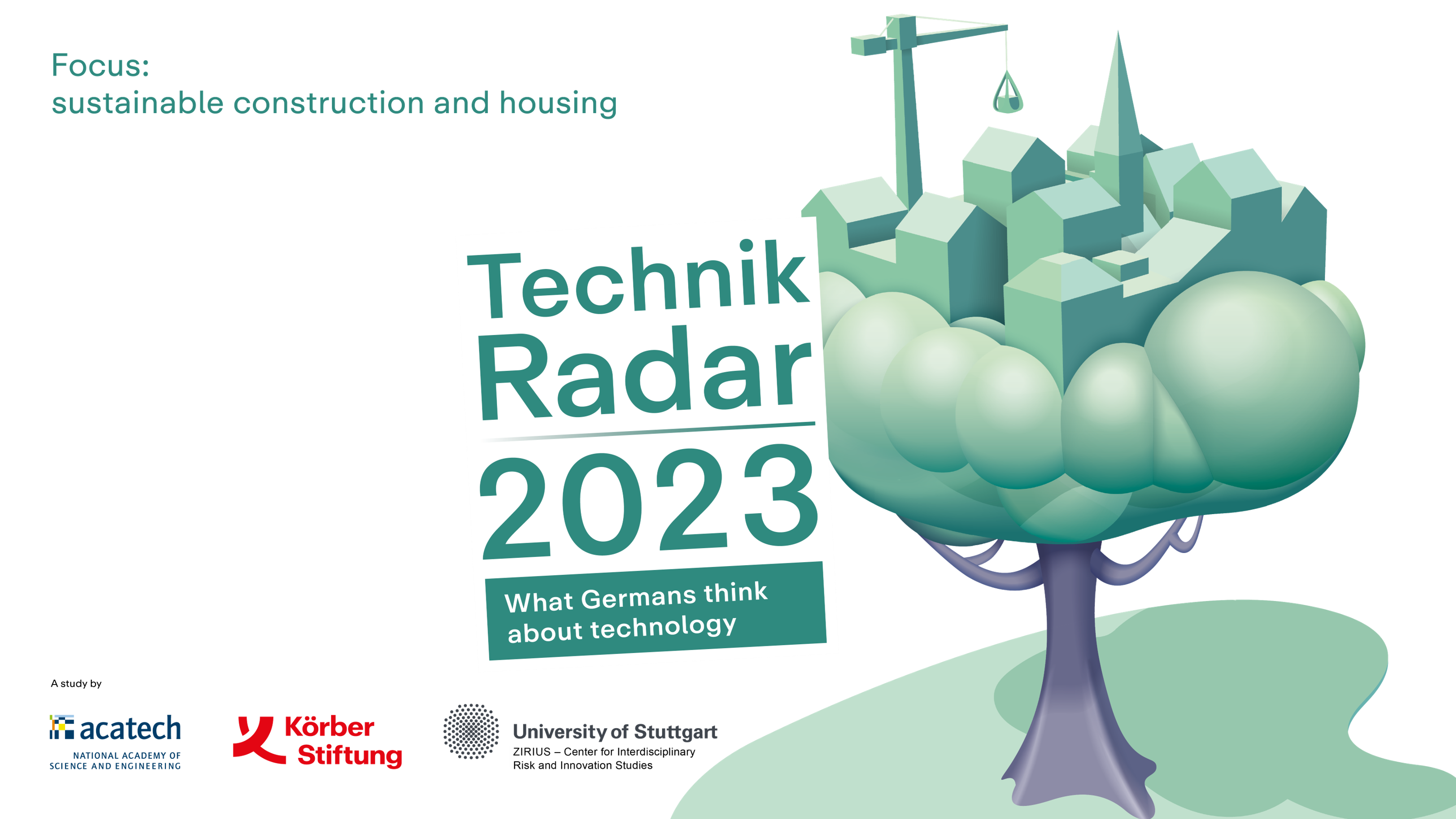TechnikRadar Corona Extra: Germans feel more tech-savvy and healthier

Munich, 17 November 2021
The coronavirus crisis has had positive side effects. This is one of the findings of the “TechnikRadar 2021 Corona Extra”, published today. For example, the representative survey shows that Germans became less wary about technology during the pandemic – and that much more people rate their state of health as “good” or “very good” than in the years pre-Covid.
The measures put in place to combat the pandemic fundamentally changed the everyday lives of Germans – but have had positive side effects at the same time. Almost half of Germans (47.5 per cent) currently feel that they have a “good” or “very good” grasp of technology in general compared with only 39 per cent two years prior. This is a finding of the special edition of the TechnikRadar (Technology Radar) entitled “TechnikRadar 2021 Corona Extra” from acatech – National Academy of Science and Engineering, Körber-Stiftung and the Center for Interdisciplinary Risk and Innovation Studies at the University of Stuttgart (ZIRIUS).
The representative survey also shows that Germans became less wary of technology during the coronavirus crisis. In 2019, 65.5 per cent of respondents agreed with the statement “The more technology advances, the more constraints there are on people” whereas in 2021 much fewer agree: 51 per cent. There are also positives to be drawn from interviewees’ responses to their state of health and wellbeing. Amazingly, after months of pandemic, Germans feel better than before: 71.8 per cent of respondents describe their state of health as “good” or “very good” – versus only 54.7 per cent in the 2017 TechnikRadar survey. More than two thirds of Germans (69.9 per cent) are also of the opinion that, compared to the average, they did not suffer particular disadvantages as a result of the pandemic.
Debate about measures: in retrospect, society more deeply divided
The TechnikRadar shows that Germans believe that the pandemic amplified existing problems or made them more visible. Two thirds of respondents (67.4 per cent) hold the view that society is more divided than pre-crisis. Data privacy measures, in particular, are contentious: “Debate about the contact tracing app, for example, has reinforced how important Germans consider the protection of personal data. Many interviewees in our survey see a problem with data protection: 52.2 per cent are of the opinion that the pandemic showed that the area of data protection overly complicates practical problem-solving. However, 14.6 per cent have no problem with data protection,” commented Cordula Kropp, Scientific Project Manager and sociologist from ZIRIUS.
The concern about the protection of sensitive data also plays an important role in connection with the digitalisation of healthcare. One in five Germans (20.2 per cent) does not want to use the electronic patient record (ePA) introduced in 2021 – the main reasons being uncertainty over who can view the data (53 per cent) as well as concerns over data protection (50 per cent). It is also significant that one quarter of those surveyed (24.4 per cent) are completely unfamiliar with the ePA.
The doctor-patient relationship is also in flux. These days, more and more Germans consult the Internet about their health issues before they go to their doctor: in the 2021 survey, 27.2 per cent of respondents stated that they do so “mostly” or “always”, compared with 17.1 per cent in 2017. Doctors are increasingly becoming information brokers who not only make diagnoses but also increasingly have to process, appraise and set straight other information and data for patients.




